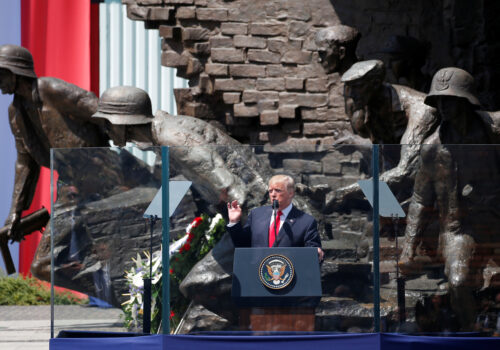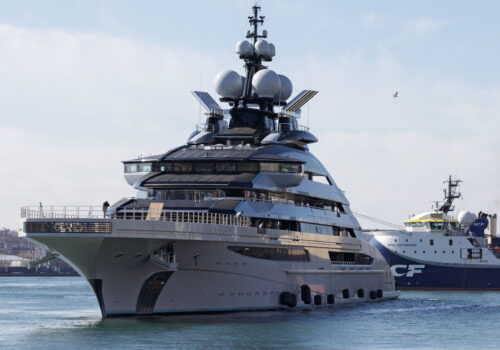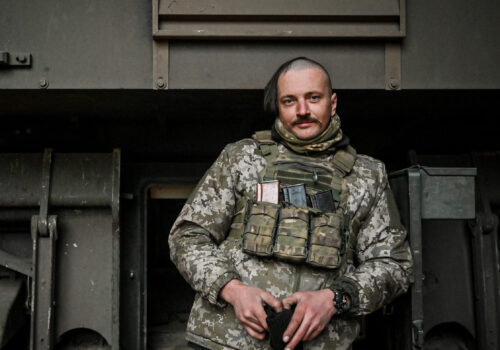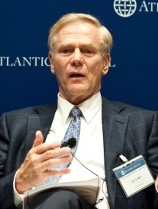With Moscow’s major offensive in Ukraine bogged down, Putin has once again waved his nuclear wand. Four days after the Kremlin’s full-scale invasion of Ukraine began, Putin put his forces on nuclear alert. Moscow has also not been shy about warning NATO away from steps to help Ukraine that it claims would escalate the conflict. To underscore this point, Russian forces have bombed Ukraine’s training base at Yavoriv, near the western border with Poland.
How real is the danger of nuclear escalation in Putin’s war on Ukraine? What do these nuclear threats mean for US and NATO policy designed to help Ukraine stop the Kremlin assault?
Ambassador John Herbst, senior director of the Atlantic Council’s Eurasia Center, moderates a conversation with Debra Cagan, distinguished energy fellow at the Transatlantic Leadership Network, General (Ret.) Wesley Clark, former Supreme Allied Commander Europe, Matthew Kroenig, deputy director of the Atlantic Council’s Scowcroft Center for Strategy and Security and the director of the Center’s Scowcroft Strategy Initiative, Jan Lodal, distinguished fellow at the Scowcroft Center for Strategy and Security, and Christopher Preble, co-director of the New American Engagement Initiative in the Scowcroft Center for Strategy and Security, on the implications of the Kremlin’s nuclear threats.
This event will not feature an in-person audience. You will be able to join via desktop or mobile app, through your web browser, or by phone. To join the question and answer period, you must join by app or web.
Register below for details on joining the virtual audience.
Follow us on social media
and support our work
issue spotlight

Europe in crisis
War in Ukraine
Experts from across the Atlantic Council are assessing the consequences of Russia’s February 2022 invasion, including what it means for Ukraine’s sovereignty, Europe’s security, and the United States’ leadership.






